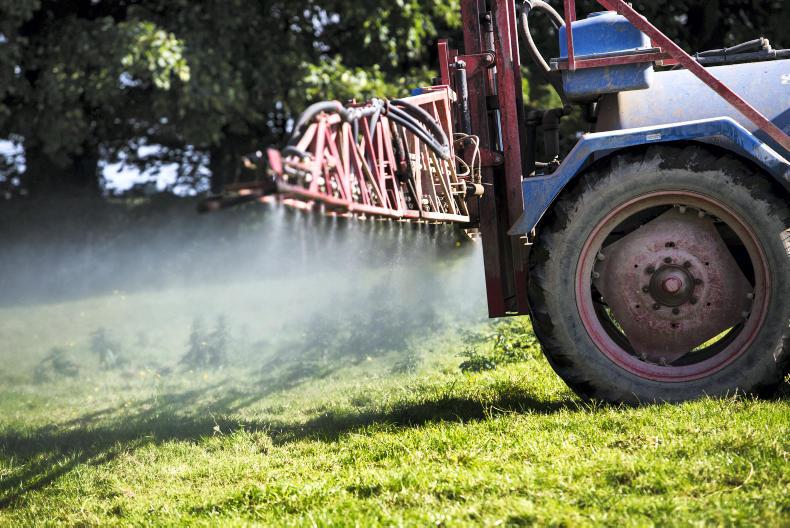A new pesticides course from Teagasc is to focus specifically on Integrated Pest Management (IPM) and the use of pesticides in grassland situations, to minimise environmental impact and promote sustainable grassland management practices.
Teagasc, in association with the Department of Agriculture, Food and the Marine, have launched the new course for advisors.
Two courses will be run next year with start dates in mid-April and early June. Further details will be available shortly on the Teagasc website.
Under the provisions of the Sustainable Use Directive (SUD), there is a requirement for all advisors who deliver pesticide advice to farmers to be appropriately trained and registered with the Department of Agriculture, Food and the Marine (DAFM).
All farm advisors receive basic crop production training as part of their primary degree but, in completing this new course, their existing knowledge will be complemented with further specific IPM and pesticide training, in addition to on-the-job mentoring.
More training
More comprehensive training is available for aspiring general pesticide advisors (PA), by way of the UCD /Teagasc Professional Diploma in Integrated Pest Management and Sustainable Use of Pesticides, but this targets the broad range of tillage, horticultural and grassland crops.
This grassland course is offered to students as a blended learning experience where a proportion of the course is delivered online.
Additionally, there are two days of face-to-face lectures and hands-on experience with experts where different grassland situations at different locations are visited.
Sheila Macken, from the Department of Agriculture Pesticide Control Division said: “The course now offers industry advisors and independent advisors an opportunity to access the latest information on grassland weed control, focusing on the IPM aspects of grassland management, while offering them the facility to study at a place which suits them.
“The feed-back from the pilot course which was run earlier this year has been very positive.
“Participants felt that the teaching methods enabled them to assess their progress through the year and the practical elements focused on real situations”.
Reliance on pesticides
Michael Hennessy, Head of Crops KT, Teagasc, co-ordinated the development of the course with the help of grassland and course development specialists.
“Focusing on the IPM aspects of grassland management in this course demonstrates to participants that there are many ways by which weeds and pests can be controlled rather than total reliance on pesticides,” he said.
“The use of pesticides must be considered carefully from an environmental point of view and where the use can be minimised, it should be minimised,” he added.”
Plant protection products and use in minor crops
MEPs reject proposed pesticide rules on endocrine disruptors






 This is a subscriber-only article
This is a subscriber-only article











SHARING OPTIONS: